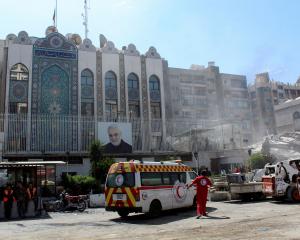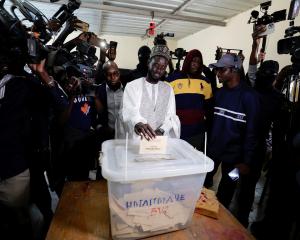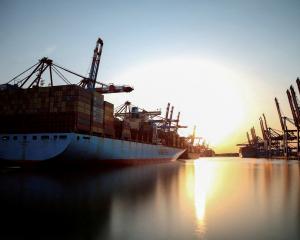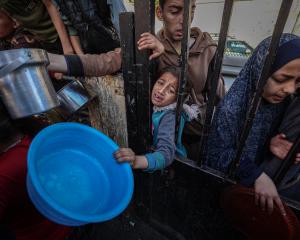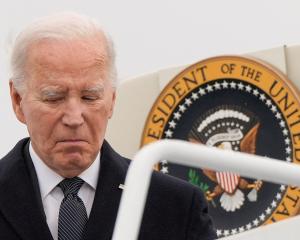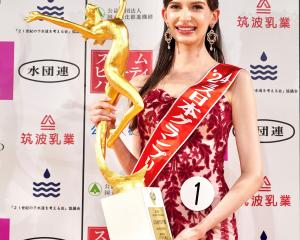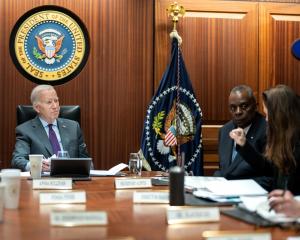From a Ukrainian point of view, the priority is not to throw their revolution away again like they did after the Orange Revolution 10 years ago.
But from everybody else's point of view, the priority now is to avoid an irreparable breach between Russia and the West.
One Cold War was enough.
The Yanukovich era is finished; the former president will not make another comeback.
He has killed too many people, and the vulgar ostentation of his former palace (whose architect understandably chose to remain anonymous) has shocked Ukrainians even though they already knew he was deeply corrupt.
Besides, Russia will not bet on this horse again.
On the other hand, the various opposition leaders will have great difficulty in deciding who leads their coalition, if indeed they can even agree on a coalition before the promised election on May 25.
But they'll still win the election, because Yanukovich never allowed any plausible rivals to emerge in his pro-Russian Party of the Regions, and Russia will not be able to find and groom a suitable replacement in time.
This will frustrate people in the Russian-speaking east and south of the country, who did not take part in this revolution and do not share the desire of the Ukrainian-speaking half for closer ties with the European Union.
They worry that free trade with the EU will threaten their jobs, and it will require much tact to reassure them that their interests will be protected.
But they will not split the country: very few Ukrainians want to be part of Russia.
Who will emerge as Ukraine's next leader?
Yulia Tymoshenko, newly released from prison, is the obvious choice, and that would certainly ease matters on the Russian front.
She got along reasonably well with Vladimir Putin, the Russian president, when she was prime minister last time.
But many Ukrainians who backed the revolution don't trust her.
Mrs Tymoshenko is dogged by questions about how she got so rich after the Soviet Union collapsed, and she bears some of the blame for the chronic in-fighting that discredited Ukraine's first attempt at running a democratic government after the Orange Revolution of 2004.
None of the other potential candidates, however, is acceptable to Mr Putin.
Then there is the wild card: what if Mr Yanukovich goes on trial for ordering the killings, and the prosecutors get their hands on his secret communications with Mr Putin?
It would not serve justice well, but it would be better if Mr Yanukovich and his leading henchmen make it safely into exile, having first destroyed all evidence of criminal acts that would implicate the Russian Government.
The best that can be hoped for in the short run, therefore, is a cold peace between Kiev and Moscow, which means that the $US15 billion ($NZ18 billion) Mr Putin promised to lend Mr Yanukovich's regime will not now be forthcoming.
But the money has to come from somewhere, and the only alternative is the West, probably in the shape of the International Monetary Fund.
It is not clear if the United States and the EU are willing to come up with that kind of money.
If not, then the upheavals in Ukraine will resume in fairly short order.
And in either case Mr Putin will work to sabotage the attempt to entrench a strong democratic system with effective anti-corruption laws in Ukraine.
US President Barack Obama can tell Mr Putin that Ukraine is not a square on a Cold War chessboard, but the Russian president does see it as a zero-sum game, and in terms of his own purposes he is right.
His pet project to restore the Soviet Union in a non-Communist version by creating a ''Eurasian Union'', for example, dwindles to nothing but Russia and a bunch of Central Asian dictatorships if Ukraine isn't a part of it.
More importantly, Mr Putin does not want to have a large, prosperous and democratic country with strong EU ties on Russia's own border.
Especially if it is another Slavic country that also used to be part of the Soviet Union, and it got its democracy as the result of a largely nonviolent revolution carried out in the main square of the capital city.
The example would be very dangerous to his regime.
There's no risk of that sort of thing happening on Red Square in Moscow at the moment, but Mr Putin thinks long term.
Russia will therefore continue to meddle in Ukraine in an attempt to abort such a dangerous outcome.
Confronting Moscow directly over this sort of thing would be a mistake, and could lead us all down the path that ends in a new Cold War.
Russians, for historical reasons, do not see themselves as ''outsiders'' in Ukraine (although most Ukrainians do), and they will react very badly to attempts to exclude them entirely.
The better and safer path is to support the Ukrainians with trade and aid, but leave it to them to deal with Russian interference in their politics.
They are perfectly capable of doing this for themselves, and they can also prosper without joining either the European Union or Nato.
But they do need a whopping great loan, right now.
• Gwynne Dyer is an independent London journalist.


